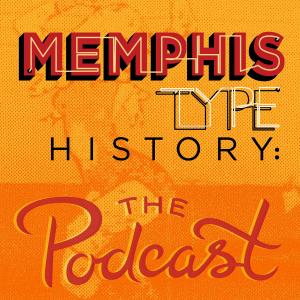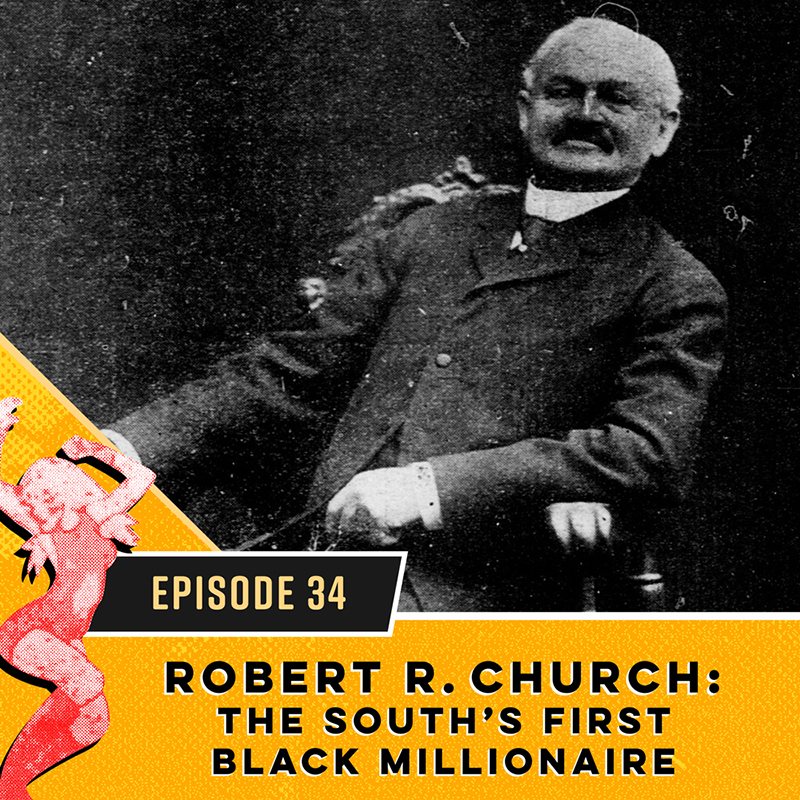
Memphis Type History: The Podcast
Society & Culture:History

This week, Caitlin and Rebecca start a new series for Black History Month. In this episode of Memphis Type History: The Podcast, Rebecca talks about a particular man who invested so much in Memphis, not only did he become recognized as the south's first African-American millionaire, but Memphis certainly wouldn't be the city it is today without him.
Robert Reed Church was born in Holly Springs Mississippi in 1939. His father, Charles B. Church, was a white steamboat owner-captain and his mother was one of his father's slaves. She died when Robert was only 12 years old.
Robert's father didn't treat him and his mother like slaves, yet he still didn't educate his son or ever formally recognize the relationship. His father did however train him in the steamboat business. Robert worked as a dishwasher, a cook, and a steward, which was the highest position for a black person.
In 1855, one of their luxury steamers caught fire and sank, though Robert and his father managed to survive. Then eventually, at age 23 while working as a steward on a boat, Robert gets dropped off in Memphis because the boat was captured by the Union Army.
Robert Church established himself as a successful Memphis businessman, owning a saloon, hotel, bank, restaurant and others that get discussed.
What we gather is, Church was invested in Memphis. And getting shot by a white mob and later on by a sheriff was not enough to make him leave the city.. nor was the Yellow Fever. In fact, he found that time as an opportunity to buy up real-estate when the property values were low. And when the time came that Memphis was reduced to a Taxing District, Church was the first citizen to buy a bond for $1,000, to restore the City Charter.
Rebecca then talks to Caitlin about some of her favorite Robert Church landmarks. The first is a hotel he owned in downtown Memphis on the southwest corner of South Second and Gayoso Streets. It was furnished with the best equipment of its day and advertised as the only first-class colored hotel in the city.
Another is the home he built for him and his family in the 1800s pictured above. It had 14 rooms, including a double drawing room (something that Caitlin and Rebecca try to guess is). The home was one of the first of the Queen Anne style built in Memphis. Unfortunately it does not still exist today.
Robert Church also founded the Solvent Savings Bank and Trust Company, the first black owned and operated bank in Memphis.
Rebecca's personal favorite establishment of his is the Church Park and Auditorium that also does not exist today other than the landmark that is pictured above. In 1899, Memphis lacked public parks for black citizens so Church bought a tract of land on Beale St., and built an auditorium which seated 2 thousand people. It was a cultural, recreational, and civic center for African-Americans and the only of its kind in the U.S. owned and operated by a person of color for members of his race.
Fun fact: W.C. Handy was employed as the orchestra leader for the park and auditorium.
For full show notes, visit memphistypehistory.com/millionaire
More Episodes
 2018-01-07
2018-01-07
 2018-01-01
2018-01-01
 2017-12-25
2017-12-25
 2017-12-17
2017-12-17
 2017-12-10
2017-12-10
 2017-12-05
2017-12-05
 2017-11-28
2017-11-28
 2017-11-22
2017-11-22
 2017-11-13
2017-11-13
 2017-11-06
2017-11-06
 2017-10-22
2017-10-22
 2017-10-15
2017-10-15
 2017-10-08
2017-10-08
 2017-09-24
2017-09-24
 2017-09-17
2017-09-17
 2017-09-10
2017-09-10
 2017-09-06
2017-09-06
 2017-08-27
2017-08-27
Create your
podcast in
minutes
- Full-featured podcast site
- Unlimited storage and bandwidth
- Comprehensive podcast stats
- Distribute to Apple Podcasts, Spotify, and more
- Make money with your podcast
It is Free
- Privacy Policy
- Cookie Policy
- Terms of Use
- Consent Preferences
- Copyright © 2015-2024 Podbean.com





